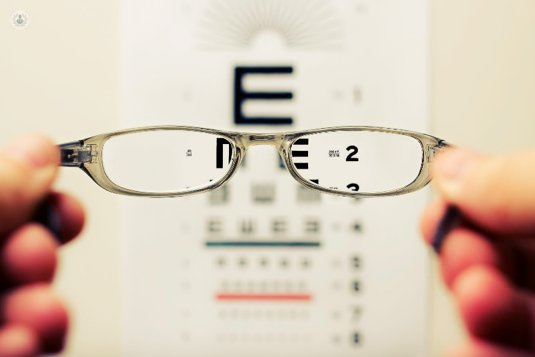options to correct vision
Autore:A refractive error exists when the eye fails to bring parallel light to focus on the retina causing either short- or long-sightedness (where distant or close objects are out of focus) or general blurred or distorted vision. In the UK, this condition is common, with many people needing to use some form of vision correction, such as glasses or contact lenses to help them see better.
Mrs Dalia Said is a highly trained consultant ophthalmologist based in Nottingham. We sat down with her to find out exactly which options are available for people wanting to improve their vision.

The easiest way to correct any kind of refractive errors is by using visual aids such as glasses or contact lenses. Glasses are the simplest and most accessible solution to manage vision problems and most people can use them regardless of their age. If you find wearing glasses full-time bothersome or inconvenient, or you don’t want to undergo surgery, then contact lenses might be a good option for you. You can find soft or rigid lenses, depending on your vision needs and lifestyle preferences.
If you are unhappy having to wear glasses and/or contact lenses every day, then there are more permanent options available to correct refractive errors. These include laser eye surgery, refractive lens exchange or phakic implants – also known as implantable contact lenses.
How does laser eye surgery work?
Laser eye surgery involves using a laser to reshape the cornea - the clear surface at the front of your eye - so that light rays can enter and focus properly onto the retina. This procedure can correct some but not all refractive errors and some times, might not be suitable for patients who suffer from dry eyes or any corneal abnormalities.
What about refractive lens exchange (RLE)?
Refractive lens exchange (lens replacement surgery) is an operation similar to cataract surgery that involves removing the patient’s own natural lens and replacing it with a carefully selected artificial lens. The personalised lens provides the best and most accurate correction for their vision. This may be a good option if you're older and are showing the first signs of cataracts.
What are phakic implants?
Phakic implants are a special kind of intraocular lens and an alternative option for people who wish to be glasses-free but aren’t suitable for laser eye surgery. During this procedure, a tailored lens is implanted into the eye in front of the patient’s own natural lens to correct their vision. They sit either just in front or just behind the pupil. Unlike refractive lens exchange, the natural lens isn’t removed. If you are less than 40 years of age and have a very high prescription, then this procedure may be a very good alternative for you.
Mrs Dalia Said is a highly trained ophthalmologist based in Nottingham. If you are considering undergoing a vision correction procedure, book a consultation on her profile so she can advise the best treatment option to suit your needs.


